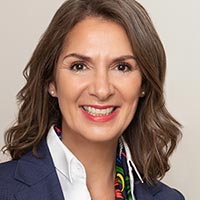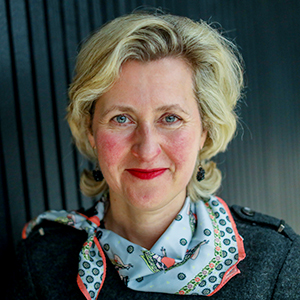
Authors
In July 2022, I had the pleasure of interviewing Helle Bank Jorgensen, CEO and Founder of Competent Boards at BSR’s Future of Reporting Workshop. Helle and I previously spent a few years as advisory board members to Ethical Corp (now Reuters Sustainability) when she invited me to join her Competent Boards program during a Responsible Business awards ceremony in London in 2019.
Some years later, as part of our BSR Future of Reporting workshop on Boards and Regulation this past July, Helle shared with our 70+ members her experience since the founding of Competent Boards in 2019, with insights on who is seeking board training, what type of training, and what’s next for the evolution of boards.
Here are the key takeaways from our discussion:
- ESG training is not about “skills-washing”—boards now have a duty of care in the new regulatory environment.
- Where previously curious board directors sought training upon recognizing a skills gap, we’re now seeing entire company board cohorts looking to upskill on all issues across ESG.
- “Luck favors those who come prepared.” There is a changed mindset from "why boards should care" to "how do we care about this." This means going beyond compliance to building long-term value creation
- Boards need to have the right insights and foresight for resilience in governance.
- Directors live their values—they must be stewarded and acted upon.
Helle, could you tell us more about Competent Boards?
Competent Boards provides designation and certification programs on ESG and climate for board members and senior business professionals. Boards need to be equipped with knowledge and frameworks that allow them to understand emerging ESG issues and make informed decisions that contribute to the well-being of companies and society. Competent Boards leverages the expertise of over 180 faculty members to equip boards with the knowledge and network needed to succeed.
You launched Competent Boards in 2019 at Davos with astounding success. How have profiles of those who are getting certified evolved over the years?
Before, it was just believers at a personal level who were curious or lifelong learners who joined the program. Now, it is much broader. Professionals today are recognizing their duty and acknowledging the skills gap. ESG training is not about “skills-washing." Directors joining the program want to feel confident that they have the necessary information to anticipate risks and opportunities to the business and how the company can create more value for shareholders and society at large. More and more companies today are therefore asking to work with their entire board instead of just a few individual members. This is a huge mindset shift.
What are boards finding most difficult today in terms of ESG? Is there any one aspect they are struggling with more?
Many board members and professionals today are aware of the climate challenge and need to act in this decisive decade. However, less known and explored–and yet still important in terms of duty of care and duty to act—is human rights. Boards have discovered that this is business too, strategic, often overlooked in terms of major risks, and invisible to hidden risks in supply chains and operations. In Europe, there is now the Corporate Sustainability Due Diligence Directive that changes the game and stipulates a board’s duty to act. Many boards today are not ready for this.
How are questions from board members changing?
The biggest change I’m seeing in terms of board mentality is “why boards should care” to “how can we care about this.” I recently said at a World Economic Forum meeting, “luck favors those who come prepared,” and I firmly stand by this. There is a changed mindset from compliance, to accountability, to long-term governance and value creation, versus passive oversight or delegation to other experts in the company. Boards can ensure that they have the right insights and foresight for resilience in governance, including an important baseline knowledge and understanding across E, S, HR, and G.
With today’s shifting regulatory framework and the new role of boards, what’s next?
More scrutiny from stakeholders as well as shareholders. Shareholders are getting sophisticated in their knowledge of ESG and the value drivers for the company. They’re sharp, and they ask far more targeted questions.
I also want to conclude by saying that there is a profound cultural change happening from the inside. Companies must internalize their core values, and this starts at the board level. Boards must live their values—and these values must be stewarded and acted upon. Otherwise, we’re back at where we started—“skills-washing” through ESG.
Helle, thank you for joining us and for a very provocative dialogue. Learn more about Competent Boards certification programs and BSR’s board offering.
Topics
Let’s talk about how BSR can help you to transform your business and achieve your sustainability goals.









